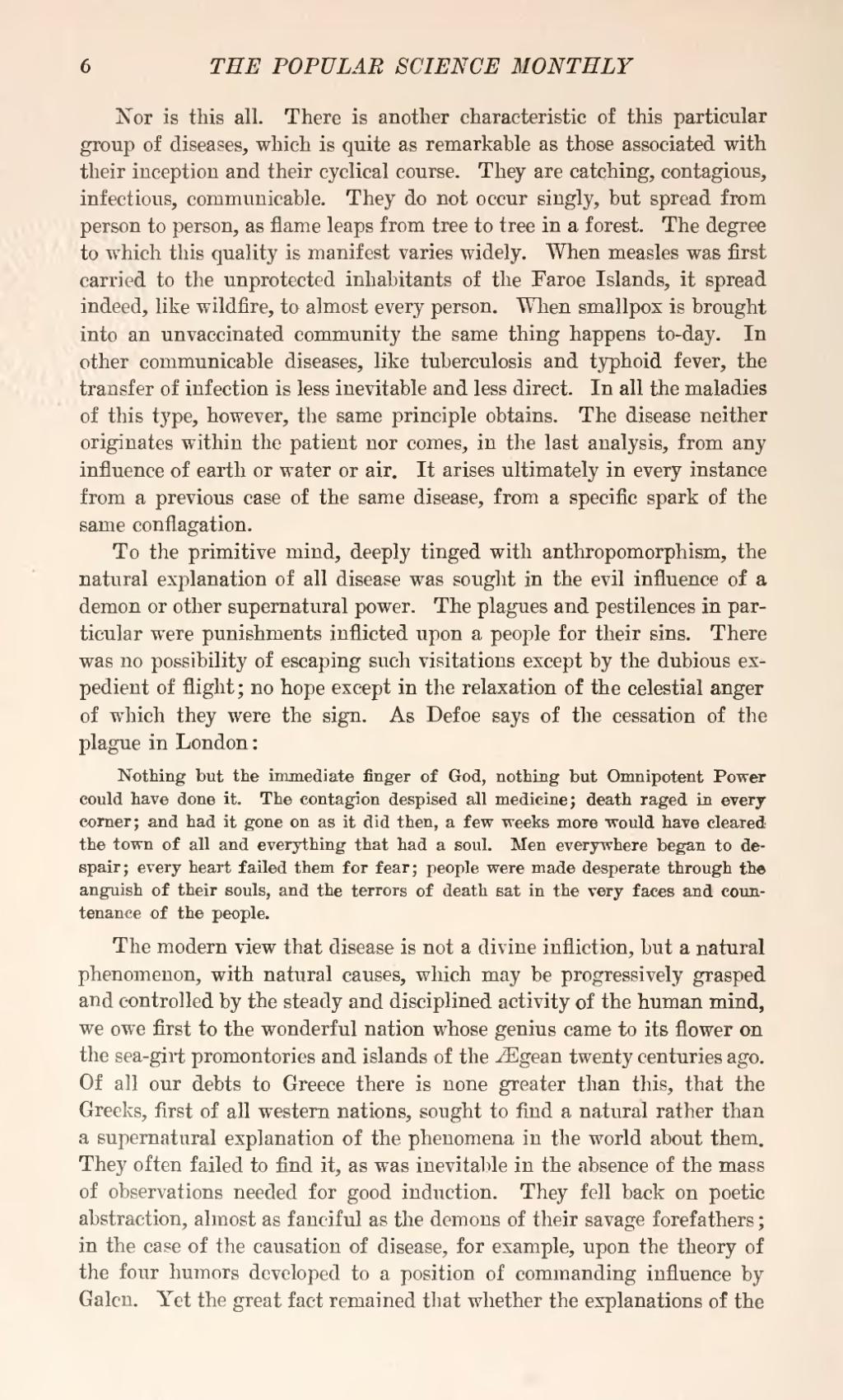Nor is this all. There is another characteristic of this particular group of diseases, which is quite as remarkable as those associated with their inception and their cyclical course. They are catching, contagious, infectious, communicable. They do not occur singly, but spread from person to person, as flame leaps from tree to tree in a forest. The degree to which this quality is manifest varies widely. When measles was first carried to the unprotected inhabitants of the Faroe Islands, it spread indeed, like wildfire, to almost every person. When smallpox is brought into an unvaccinated community the same thing happens to-day. In other communicable diseases, like tuberculosis and typhoid fever, the transfer of infection is less inevitable and less direct. In all the maladies of this type, however, the same principle obtains. The disease neither originates within the patient nor comes, in the last analysis, from any influence of earth or water or air. It arises ultimately in every instance from a previous case of the same disease, from a specific spark of the same conflagation.
To the primitive mind, deeply tinged with anthropomorphism, the natural explanation of all disease was sought in the evil influence of a demon or other supernatural power. The plagues and pestilences in particular were punishments inflicted upon a people for their sins. There was no possibility of escaping such visitations except by the dubious expedient of flight; no hope except in the relaxation of the celestial anger of which they were the sign. As Defoe says of the cessation of the plague in London:
Nothing but the immediate finger of God, nothing but Omnipotent Power could have done it. The contagion despised all medicine; death raged in every corner; and had it gone on as it did then, a few weeks more would have cleared the town of all and everything that had a soul. Men everywhere began to despair; every heart failed them for fear; people were made desperate through the anguish of their souls, and the terrors of death sat in the very faces and countenance of the people.
The modern view that disease is not a divine infliction, but a natural phenomenon, with natural causes, which may be progressively grasped and controlled by the steady and disciplined activity of the human mind, we owe first to the wonderful nation whose genius came to its flower on the sea-girt promontories and islands of the Ægean twenty centuries ago. Of all our debts to Greece there is none greater than this, that the Greeks, first of all western nations, sought to find a natural rather than a supernatural explanation of the phenomena in the world about them. They often failed to find it, as was inevitable in the absence of the mass of observations needed for good induction. They fell back on poetic abstraction, almost as fanciful as the demons of their savage forefathers; in the case of the causation of disease, for example, upon the theory of the four humors developed to a position of commanding influence by Galen. Yet the great fact remained that whether the explanations of the
